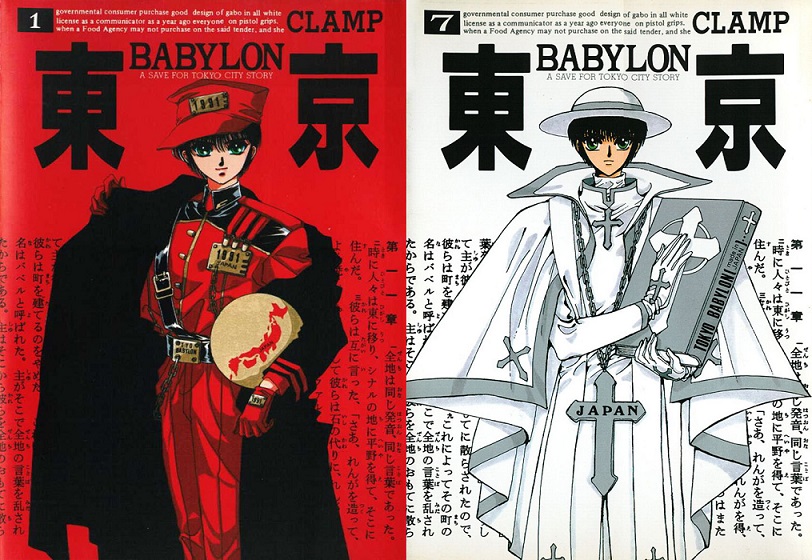Forgiveness and Redemption
Since The Doll's House, I knew that Gaiman's The Sandman will soon have a special place in my heart. I was nineteen then, and this piece of literature was also a way for me to connect with my mentor (whom I was infatuated with as well). I was eager to get back to the major story arc with the Endless for Season of Mists, and I got exactly that; and a lot more than I anticipated.
In this volume, I've learned more about the Endless (Destiny, Despair and my eventual favorite Delirium make their appearances here) since Gaiman has dedicated a single page to describe and illuminate each and their function/influence over human affairs and existence as a whole. Most notably, Dream's history with the African queen Nada from Doll's was expounded on, and the effects of his cruel punishment of sending her to Hell just because she chose not to be Dream's lover anymore. Desire may be manipulative and callous but it has a point and Death, much to Dream's surprise, agrees. Dream was forced to re-examine his judgment then, and accepting his treatment of Nada as a mistake is the first sign of character growth from him.
I distinctly remember that in Dream Country, his ex-spouse Calliope had pointed out that he has changed somehow, and that may have something to do with his 75-year imprisonment. It's very telling to readers that Dream was not always kind and has a tendency to hold grudges, and Nada is a living proof of that. Because Dream now has a firsthand experience with captivity, he has finally learned to see the error of his ways when he banished Nada to Hell and he proceeded to remedy that by visiting Lucifer Morningstar (also popularly known to most of us as the Devil and ruler of inferno) to free her.
Reading Season of Mists has dredged up uncomfortable memories from my childhood. My father had named me from Paolo and Francesca, the lovers who were sent to the fourth circle of hell in Dante's Divine Comedy and when I found out about this, I developed a fascination for the concept of hell and the devil, and I pursued this interest with vigor and to my own detriment (this is too personal to talk about here so let me just say that, because of prepubescent hormones and my insatiable hunger for taboo subjects, I ended up joining a really bad crowd that alienated me from my family). Going back to the story: Gaiman's interpretation of Lucifer Morningstar strongly reminded me of Milton's Paradise Lost.
When Dream confronts Lucifer, he began to lament human beings' prejudicial and malicious portrayal of him, claiming that he buys souls when in fact human beings are simply terrified to own to their evil misdeeds. Lucifer poignantly phrases it: "I don't make them come here (hell). I need no souls. How can anyone own a soul? No, they belong to themselves. They just hate to have to face up to it."
Lucifer then decides to abandon his post and gives Dream the keys to Hell. And here starts Dream's dilemma when all minor gods and goddesses from other religions have gathered in the Dreaming to convince Dream to give them Hell. Even angels and faeries have joined the debacle. It was quite an entertaining situation especially the way Dream has dealt with it. It's becoming clearer to readers that Dream takes his obligations seriously but broods about them most of the time. There's an exhaustion and surliness to Dream's way of doing things that often annoy me (especially in the course of the next stories) but he is nonetheless very magnetic, and surprisingly compassionate though he's not aware of it (which makes it rather comedic). His rescue of Nada was long overdue, and he may reason out that he has done it out of duty and balance of things, but I couldn't shake the feeling that he was also learning to forgive parts of his old self that hate and retaliate. In his own unknowable way, Dream loved Nada and understood that he couldn't be with her after everything, and so he parted her with one last benevolent gift.
Season of Mists overall was the most exciting volume of the series yet, and definitely character-driven, introducing characters like Nuala the faery and Loki the trickster god who will later play bigger roles in the series. This was the volume that I found a more lasting personal connection with so far. Gaiman's literary philosophy that human beings are the "godmakers" species is reinforced in this volume, and I believe that it was able to capture the nature of religions and philosophies with a more rational understanding as opposed to superstition-based, without necessarily discrediting the beliefs themselves. I was also more or less enthralled by the Dreaming, and the people Dream surrounds himself with in his realm. I definitely enjoy Matthew the raven most of all.
RECOMMENDED: 9/10
* Gaimans pays his tribute to concepts of deities and godlike creatures with a whimsical yet sublime approach; Lucifer Morningstar is easily the standout of the bunch.





Comments
Post a Comment